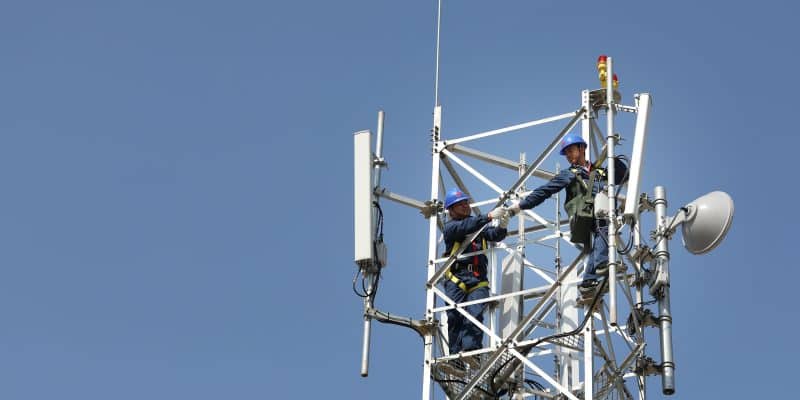Connectivity remains a challenge in Africa, primarily due to a scarcity of network infrastructure, such as fibre optics and mobile networks (3G, 4G). Aware of this reality, Huawei has committed to fostering a digital revolution in Africa for several years. But that’s not all of because, as a global provider of ICT infrastructure and smart devices, Huawei is also tailoring its connectivity solutions to bolster sustainable development.
Connectivity, the capability to link and communicate within or across networks, is vital for various modern applications, such as web browsing, email, social networking, content streaming and using cloud-based software. Although it has become essential today, access to connectivity is no universal, especially in Africa where network infrastructure, including fibre optics and mobile networks (3G, 4G) is lacking. As for the internet, the biggest communications network, the continent’s penetration rate was just about 40% in 2021, well below the global average of 68%.
To enhance internet access in Africa, Huawei is developing infrastructures, particularly to upgrade 4G mobile networks, enabling smoother web surfing and faster application performance compared to 3G. This is evident the case in the Ethiopia’s capital, Addis Ababa, where the 4G network has been operational since 2015.
Beyond developing 4G networks, Huawei has launched various initiatives to boost connectivity in Africa, including deploying fiber optics and wireless broadband solutions in various countries. The company collaborates with governments and local operators to build advanced telecoms infrastructures, like mobile network base stations and interconnected fiber networks. These advancements support economic and social growth, enabling access to e-health services and remote education, for instance.
Huawei is also committed to the Internet of Things (IoT), where its technologies facilitate connecting diverse devices and systems for more efficient resource management of resources. A notable example is the “Smart Irrigation” project in Morocco, which using IoT smart, water-efficient agricultural irrigation. These initiatives underscore Huawei’s commitment to strengthening connectivity with technology solutions tailored to Africa’s specific needs.
Sustainable connectivity in Africa: Huawei’s strategy
Promoting sustainable development by minimizing the carbon footprint of its networks represent another challenge for Huawei. The company’s key initiative, Huawei Green 1-2-3, focuses on sustainable connectivity, combining energy efficiency, renewable energy integration and user experience optimization. Huawei Green 1-2-3 embodies a comprehensive, systematic approach to greening ICT infrastructures.
As the digital world expands rapidly, ICT infrastructures increasingly demand energy, particularly data centres, which consume a growing portion of global energy. Huawei addresses this with low-carbon data centre solutions, in line with its GSSR (Green, Simple, Smart and Reliable) concept, designed to provide customized solutions for data centres of all sizes, ensuring the stable operation of the digital economy.
Huawei has developed the FusionDC1000A, an all-in-one modular data centre that enhance energy efficiency through intelligent management and integrated cooling and power systems. Unlike conventional data centres, it simplifies planning and installation. Used by Mountain View, an Egyptian property developer, this 25-year solution allows remote management, reducing operating and maintenance costs.
Utilizing solar energy
Huawei is capitalizing on Africa’s rich solar potential to establish sustainable connectivity through solar power.
The company is transforming its telecommunications towers by substituting diesel generators with advanced solar solutions and an AI-managed energy storage system. In Ethipoia, this innovation has been deployed at 400 sites, ensuring constant connectivity, saving 12 million liters of diesel annually, and cutting CO2 emissions by 2,850 tonnes each year.
Thus, Huawei plays a pivotal role in Africa, enhancing connectivity while minimizing the environmental impact of ICT development, merging innovation with sustainability. The company is involved in projects that not only improve connectivity, including through satellites, but also promote environmentally-friendly practices in ICT. Huawei aims to democratize technology access, bridging the digital divide and fostering innovation, aligning with local African policies to advocate for eco-friendly technologies. This global strategy seeks to lessen the digital sector’s environmental footprint, a critical development vector in Africa but also a notable contributor to global greenhouse gas emissions.
Article produced in partnership with Huawei






